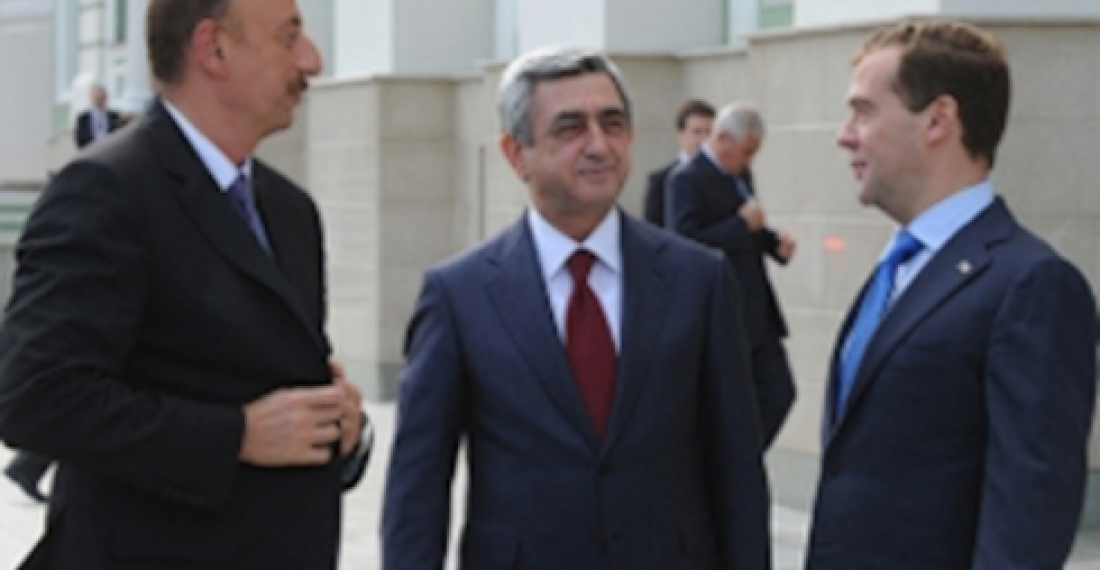Armenian and Azerbaijani officials have since the summit in Kazan on 24 June blamed each other for not being able to do what many had expected for some time, namely to agree a series of basic principles that would pave the way for starting discussions on a peace treaty.
The choice of words has been unfortunate, sharp and in some instances insulting.
Yet both sides also claim that they are committed to the peace process and await the next steps of the international community.
This contradiction can be explained by the fact that something has changed recently in the Nagorno-Karabakh conflict settlement process. The international community has for the first time been showing a unity of purpose and a determination to bring the negotiations to a successful conclusion. Despite all the various hotspots in the world Karabakh has been high on the agenda of world leaders in the last six months. The President of Russia Dimitri Medvedev has staked some of his own political credibility, and invested a lot of his time in trying to broker a deal. The meeting in Kazan was the 9th one he has hosted since 2008.
The Obama administration, after an initial long pause has now also engaged with the process, with both the President and Secretary Clinton, working the phones over the last weeks. Indeed Karabakh has become an opportunity for Russia and the US to be seen working together. Europe is also engaged, with a clearer vision of what needs to happen and what it can do to support the process. The message from the international community is therefore unanimous and unequivocal.
Neither Armenia nor Azerbaijan want to be seen to be the spoilers. Hence the blame game after Kazan. Neither side however, it seems, is ready either to take the necessary last step to close the deal.
Trading insults is not helpful. At worst it can inflame the situation triggering accidents. Both sides need to calm down.
One positive outcome of the last few days has been that both sides have been releasing selectively information about what has been discussed in the secretive negotiations that have been going on for years. Each side is releasing the information that suits it. The mediators now need to step in and give the world a more comprehensive picture of where the negotiations are, and what are the stumbling blocks. Not to do so now may irreparably damage the process in front of the public opinion in the region and beyond.
It is now important that the international community does not take its eye off the Karabakh ball. As EU High Representative Catherine Ashton pointed out when addressing the European Parliament at the beginning of July what needs to be done has to be done before the end of the year. The Russian position is similarly that there is now neither the need nor the reason to delay further. It is decision time. They are right.
This commentary was compiled by the editorial team of www.commonspace.eu







